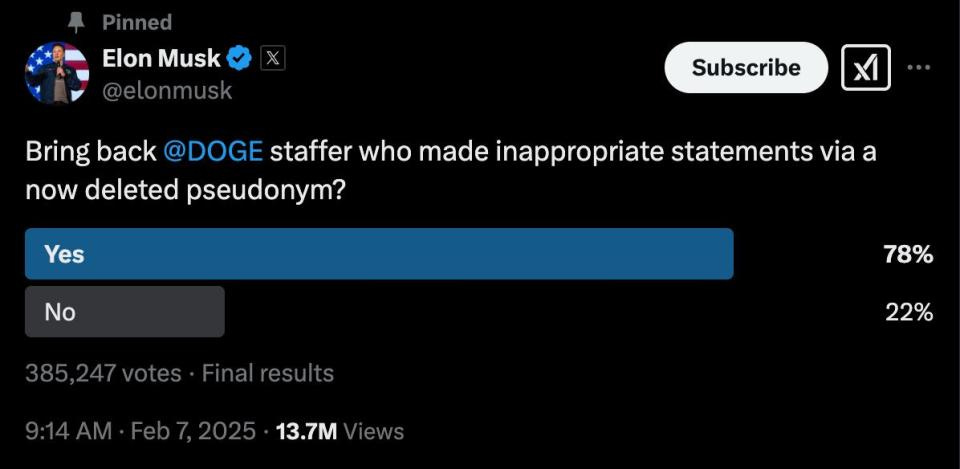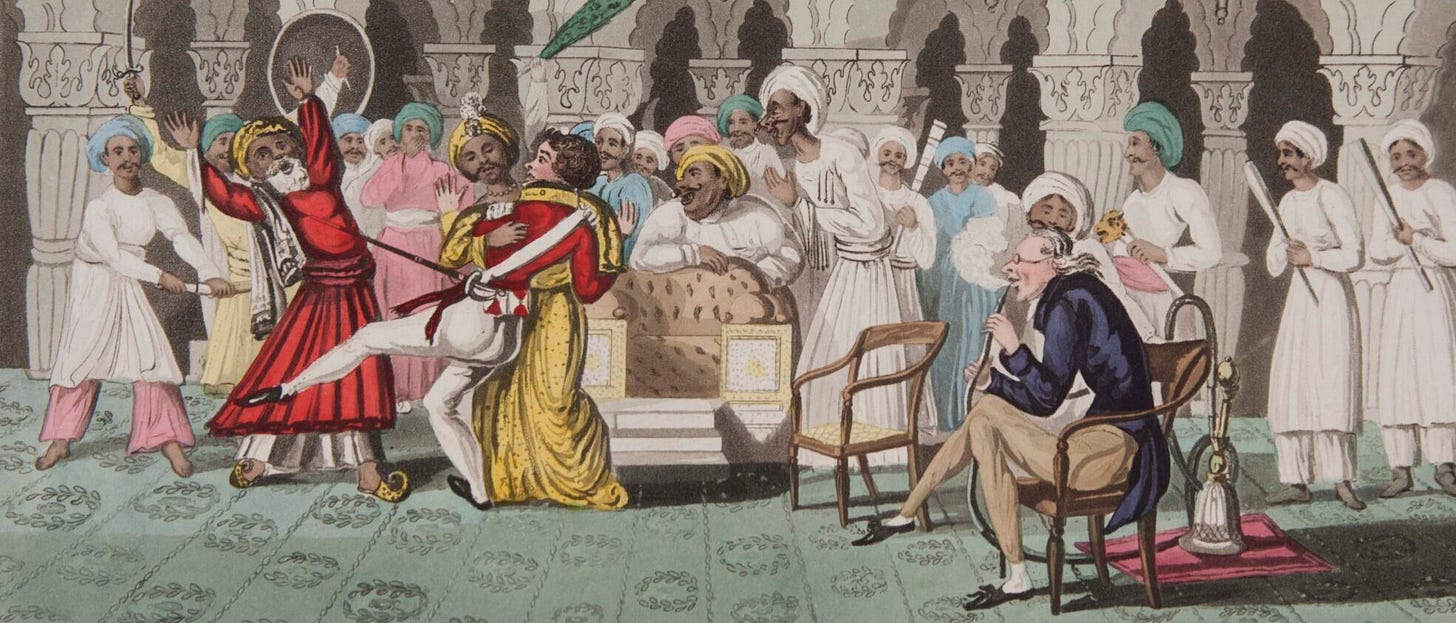"Normalize Indian Hate": Gen Z's problem with South Asians
Elon Musk’s DOGE employee will be rehired after racist posts—highlighting a deeper culture of anti-South Asian bias among Gen Z and in the tech world.
It started with a social media scandal. Marko Elez, a 25-year-old employee at the Department of Government Efficiency (DOGE), resigned after The Wall Street Journal revealed that he had posted blatantly racist messages on X (formerly Twitter), including “Normalize Indian hate.” These were not old posts, they were all uploaded with the past year. The backlash was immediate—or so it seemed.
Instead of condemnation from all corners, prominent figures rushed to defend him. Vice President J.D. Vance (who is married to the daughter of Indian immigrants) called for Elez’s reinstatement, arguing that “stupid social media activity” shouldn’t ruin a young man’s life. Elon Musk, head of DOGE, reposted Vance’s comment with a message about forgiveness, positioning Elez’s racism as little more than a youthful mistake.
What might seem like an isolated incident is actually part of a larger pattern. In tech spaces, where the demographics are predominantly young white and Asian males, “edgelords” often come into proximity with South Asians, giving rise to troubling sentiments disguised as off-color jokes. While the language has evolved, the underlying ideas remain the same—colonial stereotypes that once painted South Asians as dirty and inferior have been reborn in memes, viral polls, and digital dark humor.
The Rise of Anti-Indian Sentiment
On social media, anti-Indian jokes have gained traction in Gen Z circles, coming in various forms.
Anti-Indian bias targets tech and service professionals through memes and posts that reduce them to "cheap labor" or call center workers. The recent controversy around H-1B visas has only amplified these narratives, making Indian workers easy scapegoats in online spaces. On X, users claim Indian engineers are flooding the U.S. tech industry and stealing American jobs, regurgitating traditional anti-immigrant rhetoric. Memes depict Indian professionals with exaggerated accents or poke fun at the tech support stereotype, ignoring the reality of their qualifications and contributions to innovation in Silicon Valley.
On TikTok, travel influencers and viral videos fan the flames anti-Indian narratives by mass-producing rage-bait content in India. Under the guise of critiquing “hygiene,” they portray Indian life in India as dirty or unsafe, often intentionally and for shock value. Clips show street vendors preparing food with exaggerated disgusted reactions, vomit 🤮 and poop 💩 emojis, or ominous sound effects to imply filth and danger. Influencers sometimes haggle with street vendors in offensive ways, reducing local culture to a caricature for views.
When Indian culture is consistently framed as dirty or undesirable through viral videos, it sets the stage for unabashed bigotry. In one viral example, users were asked whether they’d prefer to be Indian or live in the fictional apocalypse with man-eating monsters from Attack on Titan. The majority of respondents chose the apocalypse. Another asked if users would rather be Indian or rape their teacher, with a similar outcome. And yet still, a poll asked if sacrificing a family member would be preferable to "being Indian for life." In the words of YouTuber LuvHilal, “this is what Indian street food propaganda does to you.”
Colonial Roots of Modern Racism
To understand this rise in anti-Indian sentiment, we have to look back at colonialism. When the British colonized South Asia, they implemented racist policies that demonized South Asians as uncivilized and intellectually inferior. These narratives didn’t disappear after independence—they evolved and followed South Asian communities as they migrated to places like the U.S. and U.K.
South Asians were welcomed into the West’s labor markets when it suited economic needs—Indian doctors filled gaps in the British healthcare system, and Pakistani and Bangladeshi workers rebuilt British industries after World War II. But they were never fully embraced. Racist ideas from the colonial era justified their exploitation and later fueled discrimination, exclusion, and violence. Today, colonial ideas are reflected in modern tech spaces. South Asians are often reduced to stereotypes: either the genius coder—think Sundar Pichai and Satya Nadella—or the cultural outsider who doesn’t belong. Sometimes both.
Demonization Disguised as Humor
What sets this wave of anti-Indian racism apart is how it’s disguised as humor. In online spaces, racist comments about South Asians are framed as jokes—harmless satire meant for laughs.
Gen Z has built an online culture that prides itself on irony and edginess. But beneath the surface, this "dark humor" reinforces old colonial narratives. When young South Asians scroll through these posts, it sends a clear message: their identity is something to be ashamed of, a punchline for the rest of the internet.
This isn't just trolling. It’s a modern form of dehumanization, with real consequences. For South Asian youth, constant exposure to these messages can lead to feelings of inferiority and shame. The same colonial tactics used to justify imperial violence have found new life in social media comment sections and tech office banter.
The Bigger Picture
Marko Elez’s comments were not an isolated incident—they were a symptom of a much larger problem. By excusing and reinstating him, leaders like Elon Musk aren’t just giving one person a pass; they’re signaling that this type of behavior is acceptable. It cosigns the normalization of anti-Indian hate across digital platforms, where polls, TikTok videos, and memes on X reduce a vibrant culture to punchlines and slurs. Ignoring it only reinforces these dangerous narratives.
References
Firestone, Asher. "The Origins of Anti-South Asian Racism and Its Resistance." Fearless Futures, February 15, 2022.
Venkatraman, Sakshi. "Some H-1B Workers Say They Feel Insulted by Debate over Visa Holders." NBC News, January 6, 2025.
Abbruzzese, Jason. "Elon Musk Says DOGE Staffer Who Resigned for Racist X Posts Will Be Brought Back." NBC News, February 7, 2025.
"Indian 'Tech Bros' in Trump Era: From Model Minority to Hate Target." The Economic Times, January 2, 2025.
LuvHilal, “Gen Z Hates Minorities” Youtube, January 29, 2025










